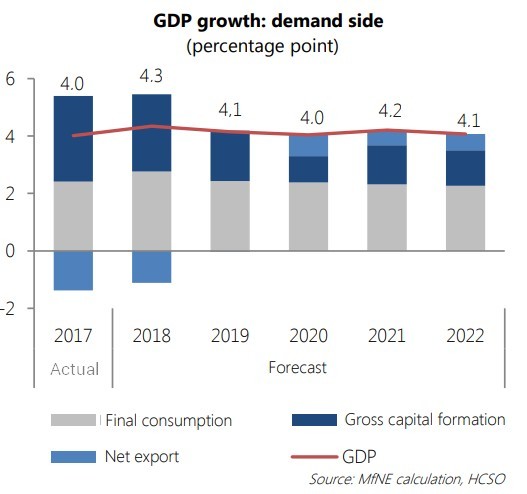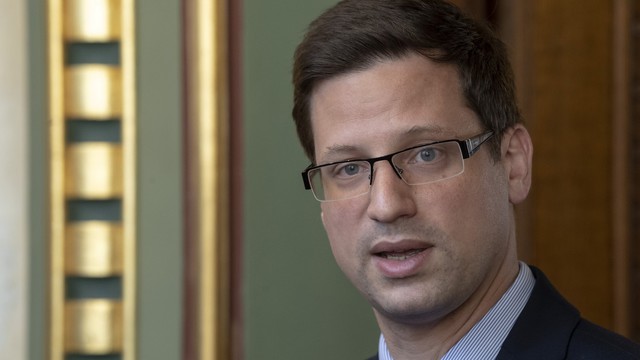New member of Hungary's 4th Orbán cabinet reveals some plans
Fiscal measures
Orbán won his third successive term in power on 8 April at an election dominated by his fierce anti-migrant campaign which was also targeting Hungarian-born financier and philanthropist George Soros. The no-holds-barred campaign resonated well with large swathes of the electorate, especially in poorer, rural areas. The landslide gave Orbán’s ruling Fidesz party the power to rewrite any laws, including the constitution.As we have highlighted in several articles last week, the fourth (and third successive) cabinet led by PM Orbán, plans to keep economic growth persistently over 4.0%. We also warned that this is a highly ambitious objective, although we still do not know the new growth stimulating measures.
Gulyás, who is currently the leader of the parliamentary group of Orbán’s Fidesz party, confirmed that keeping economic growth above 4.0% in the coming years would require additional measures, adding that these have been currently discussed but no decisions have been made.

From the agriculture sector, to industry, the machinery sector and construction, we would like to see that this development is broad-based
, Gulyás told Reuters, declining further comment on the specific proposals being discussed.He did say, however, that the new government would press on with hikes in the minimum wage, which have filtered through to the broader economy, helping Orbán’s re-election bid.

Hungarian euro
Gulyas said the wage rises and strong economic growth could help Hungary catch up to western living standards faster, adding however that in his personal opinion, joining the euro zone would not be likely during the next four years.“For now, there is a consensus among most economists that we should enter the euro zone, when we reach 80 to 90% of the average EU living standards," Gulyás said, adding that Hungary was currently at 69%.
We should join the euro zone when it serves the interests of the Hungarian economy and citizens.
What else is up the cabinet’s sleeve?
While the ruling Fidesz party has a two-thirds majority in Parliament, which gives it the power to rewrite any laws, including the constitution, Gulyás said no reforms were in the pipeline that would undermine judicial independence.Poland, eastern Europe’s biggest economy and Hungary’s key ally in the EU, has been locked in a legal battle with the European Commission over reforms affecting its judiciary.
Should there be any changes, that will not affect the constitutional requirement of judicial independence
, Gulyás said when asked whether a similar conflict could emerge in Orbán’s next term in power, after a batch of sweeping reforms following his 2010 election victory.“If there should be any intention to change this, that would pertain to the justice minister. However, as of today, I am not aware of anything to that effect," he added.
About the next EU budget
Gulyás also said Hungary would not be headed into talks about the EU’s next budget with an intention to veto it.The European Commission presented its proposal for the 2021-2027 Multiannual Financial Framework (i.e. budget) last week. Orbán said on Friday "the key advice is to "take it easy" because this will be a long debate."
The seven-year budget must be created in full unison and until the Hungarians say it’s a go, there will be no budget, he pointed out.
Orbán said the migrants should not be granted "a single cent", everyone should take care of that from their own budget. He added that he is also against cutting the agricultural budget.
The new MFF proposed by the EU executive will trigger battles among members over how to fill the funding gap left by Britain’s exit next year.Poland, which the Commission has in its sights with a new mechanism to penalize authoritarian governments that impinge on independent judges, warned of “a long road ahead" to reach the unanimous compromise required to put the budget into effect.
“We belong to those, who approach the departure of the second-strongest economy from the EU rationally," Gulyás said. “We have taken up a negotiating position that is open to sensible proposals."









